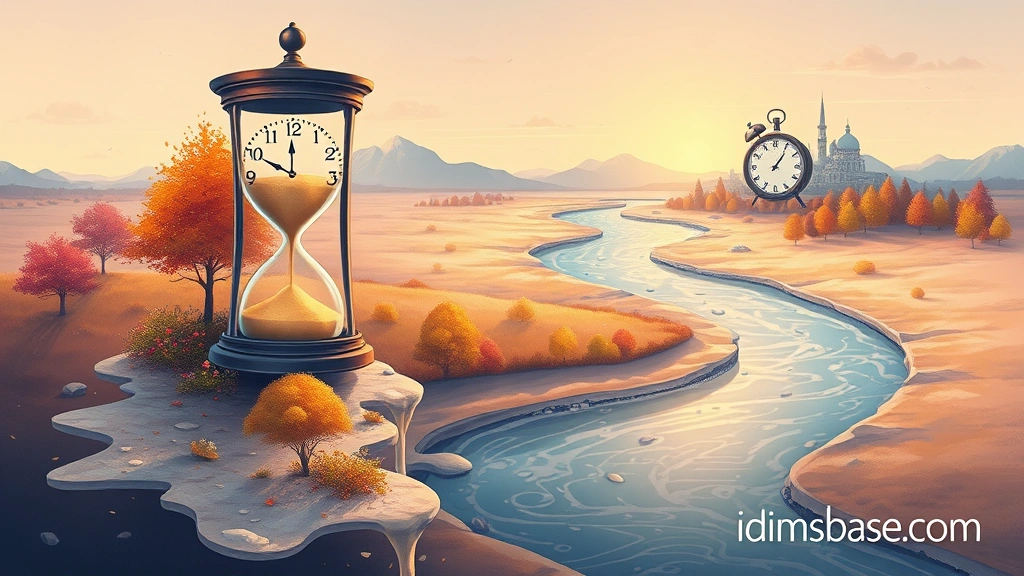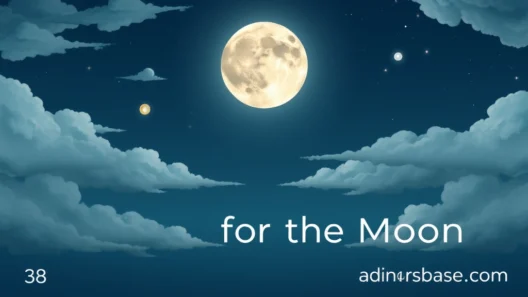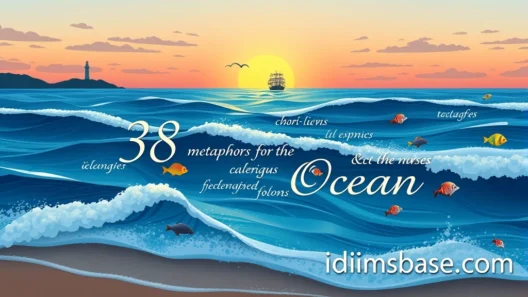Tick-tock, tick-tock… Have you ever stopped to truly think about time? It’s one of those universal concepts that touches every single one of us, yet it’s so incredibly elusive and mysterious. We try to grasp it, measure it, save it, spend it, and sometimes, even wish it away. But what is time, really? Since ancient times, people have used metaphors to try and make sense of this intangible force. These vivid comparisons help us understand time's many facets – its unstoppable march, its fleeting nature, its healing power, or even its destructive tendencies.
Metaphors are like little word-pictures that paint a clearer image of complex ideas. They help us connect with concepts on a deeper, more intuitive level. And when it comes to time, metaphors are absolutely essential! They transform an abstract idea into something we can almost touch, see, or feel. Ready to dive into a treasure trove of imaginative ways to describe time? Let's explore 38 fascinating metaphors that will change how you see every second, minute, and hour!
Why Do We Use Metaphors for Time?
You know, time is a bit of a paradox. It’s always there, constant and unwavering, yet it feels different to us depending on what we're doing. Think about it: a minute waiting for something exciting can feel like an eternity, but an hour spent laughing with friends flies by in a blink! Because time is intangible and can't be held or seen, we rely on metaphors to give it form and meaning. These word pictures help us:
- Understand its elusive nature: How do you describe something that's always moving but has no physical presence?
- Express our feelings about it: Is time a friend or an enemy? A healer or a thief?
- Share universal experiences: Everyone experiences time, and metaphors help us connect over these shared feelings.
- Add richness to language: Imagine trying to talk about time without any descriptive flair!
So, let's embark on this journey and unlock the imaginative power of language!
38 Metaphors for Time
Here are 38 captivating metaphors that offer unique perspectives on time. Each one paints a different picture, inviting you to ponder its meaning.
Time as a Flowing Entity
- Time is a river: This is perhaps one of the most common and powerful metaphors. A river flows continuously, always moving forward, never stopping or reversing. It carries everything along with it, just as time carries us through life.
- Time is a current: Similar to a river, a current implies an irresistible force pulling you along. You can’t fight it; you can only go with the flow.
- Time is a tide: Tides ebb and flow, but they are part of a larger, unstoppable cycle. Time, too, has its rhythms and returns.
- Time is a relentless wave: Each wave crashes upon the shore, one after another, an endless succession. Time is like that, an unending series of moments.
- Time is a fleeting mist: Mist appears and then vanishes quickly, leaving no trace. This highlights how ephemeral and transient time can be.
Time as a Living Being or Entity
- Time is a thief: Oh, this one hits home! Time steals moments, youth, opportunities, and even loved ones from us. It takes without asking permission.
- Time is a healer: A beautiful and comforting metaphor. Time has the power to mend wounds, ease pain, and bring perspective after loss or heartbreak.
- Time is a friend: When you’re enjoying yourself, time feels like a pleasant companion, making moments enjoyable and memorable.
- Time is an enemy: When you’re racing against a deadline or suffering, time can feel like a relentless adversary, working against you.
- Time is a cruel master: This emphasizes time's unyielding demands and its indifference to our wishes or pleas. It dictates our pace.
- Time is a silent observer: It watches everything unfold, never interfering, just bearing witness to all of history.
- Time is a storyteller: Every moment adds a new chapter, every year a new volume. Time narrates the entire saga of existence.
Time as a Journey or Path
- Time is a road: We travel along it, moving from past to future. It can be smooth, bumpy, winding, or straight, much like life's journey.
- Time is a journey: Life itself is a journey, and time is the vehicle or the path we traverse.
- Time is a passage: We pass through different phases, stages, and eras, moving from one to the next.
- Time is a bridge: It connects the past to the future, allowing us to move from one state or period to another.
- Time is a ladder: We ascend or descend through years, reaching different points in our lives.
Time as a Resource or Commodity

- Time is money: This is a classic! It suggests that time is valuable and should be spent wisely, invested, or saved. Every minute lost is like money lost.
- Time is a treasure: It's something precious and irreplaceable, to be cherished and guarded.
- Time is a gift: Each moment is a present, a blessing that we are given.
- Time is a finite resource: Like oil or water, it's limited, and once it's gone, it's gone forever. This emphasizes its scarcity.
- Time is a blank canvas: Each day, each moment, is an opportunity to create something new, to paint your life story.
- Time is a bank account: You can deposit moments, withdraw memories, and sometimes, you might even find yourself overdrawn!
Time as a Force of Nature or Mechanism
- Time is a machine: It keeps ticking, grinding, and moving, a complex mechanism that never stops. Think of gears turning endlessly.
- Time is a pendulum: It swings back and forth, representing cycles, repetitions, and the rhythmic nature of existence.
- Time is an hourglass: Sand trickles down, irreversibly, showing how moments are constantly slipping away. Once it's gone, you can't get it back.
- Time is a clock: It constantly measures, ticks, and moves forward, a constant reminder of its passage.
- Time is a fire: It consumes everything in its path, burning away the old to make way for the new. It can be destructive but also purifying.
- Time is a shadow: It follows us, always present but elusive, sometimes long, sometimes short, shifting with the light.
- Time is a silent explosion: It constantly expands, creating new moments and experiences, pushing outwards into the future.
Time as an Abstract Concept with Physical Attributes
- Time is a fabric: We weave our lives into it, adding threads of experience, memories, and relationships. It can unravel or strengthen.
- Time is a dimension: Beyond length, width, and height, time is the fourth dimension, allowing movement and change.
- Time is a spiral: It doesn't just move in a straight line; it can circle back, with themes and experiences recurring, but always on a new level.
- Time is a mirror: It reflects our past, showing us how we've changed and what we've become.
- Time is an open book: The pages are constantly being written, filled with our stories, experiences, and decisions.
- Time is a game: We play it, with wins and losses, strategies and unexpected turns.
- Time is a seed: It holds the potential for growth, development, and future possibilities.
- Time is a dream: It can be fluid, illogical, and sometimes, we wake up realizing how much has passed without our full awareness.
Key Takeaways
- Time is abstract: Because time isn't physical, we use metaphors to help us understand and describe it.
- Metaphors provide perspective: They offer different ways to view time – as a force, a resource, a journey, or even a living entity.
- Language is powerful: These metaphors show how rich and expressive the English language can be, allowing us to convey complex ideas simply.
- Time is universal, but personal: While everyone experiences time, these metaphors highlight how our individual feelings and perceptions shape our understanding of it.
- Choose your metaphor: The metaphor you choose can reflect your current attitude towards time – are you rushing against it, or enjoying its slow unfolding?
Frequently Asked Questions About Time Metaphors

Q1: What is a metaphor, and how is it different from a simile?
A metaphor is a figure of speech that directly compares two unlike things by stating that one is the other, without using "like" or "as." For example, "Time is a river." It implies a deeper identity.
A simile, on the other hand, compares two unlike things using "like" or "as." For example, "Time is like a river" or "Time flows as swiftly as a river." Similes suggest similarity, while metaphors claim identity. Metaphors are generally stronger and more evocative.
Q2: Why are there so many different metaphors for time?
Time is incredibly complex and multifaceted! It can feel different in various situations. Sometimes it flies, sometimes it crawls. Sometimes it heals, sometimes it hurts. Because of its many perceived qualities and our varied experiences with it, people have developed countless ways to describe it, each highlighting a different aspect. Each metaphor tries to capture a unique facet of time's nature.
Q3: Can using metaphors for time change our perception of it?
Absolutely! Language shapes our reality. If you constantly think of "time as a thief," you might feel anxious about its passage and worry about what you're losing. But if you view "time as a gift" or "time as a blank canvas," you might feel more grateful, inspired, and empowered to make the most of each moment. Metaphors aren't just decorative; they influence our mindset and behavior.
Q4: Are these metaphors specific to English, or are they universal?

Many of these metaphors, especially "time is a river" or "time is a thief," are found across various languages and cultures. This is because the fundamental human experience of time – its linearity, its fleeting nature, its power to change things – is universal. However, specific expressions and nuances can vary from one language to another, reflecting cultural perspectives on time.
Q5: How can I use these metaphors in my everyday life or writing?
You can use these metaphors to add richness and depth to your conversations, presentations, or creative writing. For instance:
- In conversation: Instead of saying "I'm busy," you might say, "Time feels like a relentless current today, pulling me in many directions."
- In writing: If you're describing a period of healing, you could write, "Time, the gentle healer, slowly mended the wounds of the past."
- For reflection: Choose a metaphor that resonates with you and use it as a prompt for journaling about your relationship with time.
Using metaphors makes your language more vivid, memorable, and engaging.
Q6: Do these metaphors apply to all types of time (e.g., geological time, personal time)?
While many metaphors are flexible, some might feel more appropriate for personal time. For instance, "time is a healer" usually refers to personal emotional healing. "Time is a river" or "time is a machine" can apply to both personal experiences and broader concepts like geological time, emphasizing its continuous, unstoppable nature. The context often helps clarify the intended meaning.
Q7: Are there any negative or challenging metaphors for time?
Yes, definitely! Metaphors like "time is a thief," "time is an enemy," "time is a cruel master," or "time is a consuming fire" all highlight the challenging, destructive, or relentless aspects of time. They reflect feelings of loss, pressure, or helplessness in the face of time's unstoppable march. These metaphors acknowledge the darker side of our temporal experience.
Conclusion
Wow, what an incredible journey through the many faces of time! From a relentless river to a silent observer, from a precious gift to a cruel master, these 38 metaphors truly showcase the incredible depth and complexity of a concept we often take for granted. Each one offers a unique lens through which to view our most valuable, yet intangible, asset.
So, the next time you glance at a clock or feel a moment slip away, pause and consider: what metaphor best describes time for you in that very moment? Is it a precious treasure you're carefully guarding, or a swift current carrying you to new adventures? Understanding these metaphors not only enriches your vocabulary but also deepens your appreciation for the constant, ever-present force that shapes our lives.
Which of these metaphors resonated most with you? Or do you have a favorite one that wasn't on our list? We'd absolutely love to hear your thoughts and insights! Share your favorite time metaphor in the comments below and tell us why it speaks to you. Let's keep this fascinating conversation about time flowing!






